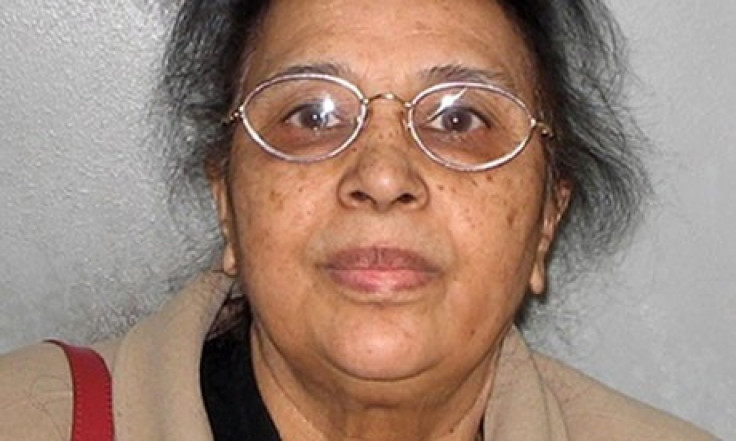London woman convicted of keeping African slave

A former hospital director in Britain has been convicted of keeping an African woman as a slave in her London home for four years and ordered to pay her £25,000 in damages.
Saeeda Khan, 68, an Asian woman, was convicted of trafficking a person into the UK for exploitation. The judge in the case also slapped her with a suspended nine-month prison term, and said she was guilty of the most appalling greed.
Mwanahamisi Mruke, 47, originally from Tanzania, was flown to Britain in 2006 and forced to work 18-hour days for Khan at her home in Harrow, northwest London.
Judge Geoffrey Rivlin QC of Southwark Crown Court condemned Khan for telling a pack of lies during the trial by claiming Mruke, whom he described as naive and illiterate, was treated as part of the family.
Your own behavior was callous and greedy,” the Judge declared to Khan. You could easily have afforded to pay her a reasonable sum by way of wages. You chose to give her virtually nothing.
However, Rivlin declined to give Khan a custodial sentence, citing her advance age, poor health and the fact that she has two adult disabled children.
According to media reports, Khan would order Mruke around by ringing a bell. Mruke was also denied her passport and liberty and suffered the trauma of slavery in order to support her daughter who is studying in college in Africa.
I felt like a fool, I was treated like a slave, Mruke said.
Mruke was originally working in a hospital in Dar Es Salaam in Tanzania which Khan owned before being brought to England. Reportedly, Khan told her that she would only work six hours a day and that her daughter in Tanzania would be paid 120,000 Tanzanian shillings a month (£50).
Initially, Khan gave Mruke an allowance of £10 a month to work around the clock at her beck and call, stated court documents. However, within a year she stopped paying her altogether.
Even the money I was promised, I was never paid. I feel terrible about this, Mruke said.
I was hoping I would receive a salary and improve my life. But my hopes were dashed, my strength was reduced and I became unwell.
Among other revelations from the trial, Khan fed Mruke only two slices of bread a day and forced her to sleep on the kitchen floor.
Caroline Haughey, prosecuting, told Southwark Crown Court: From the moment of her arrival in England Mwanamisi was made to sleep, work and live in conditions that fall by any understanding into that of slavery.
Mruke was also forbidden from leaving the house and she never learned English because the family only watched Pakistani TV.
Mruke was forced to begin work at six in the morning and spent the entire day cleaning, cooking and accompanying Khan’s disabled son on walks. She would not rest until midnight.
Mruke told the court that sometimes she did not sleep at all due to her long hours of work, doing all the housework, cooking, cleaning, inside and out.
She didn't attack me physically. It was just the words and the way she was treating me,” Mruke said. I feel that justice should be passed and others should learn from this. I feel terrible about her.
Mruke’s ordeal was discovered only after went to see a physician in February 2010 for an examination of her varicose veins.
The doctor’s interpreter Rhoda Mwanga contacted an anti-slavery charity Kalayaan, who in turn informed police.
More than a week, police officers, accompanied by Mwanga and staff from Kalayaan, visited Khan's home and took Mruke to a place of refuge.
Khan was arrested and later charged with trafficking.
During her three-plus years of slavery, Mruke’s parents died and her daughter married, but she was prohibited from contacting them.
Khan also made veiled threats to Mruke throughout her ordeal about not discussing her situation with anyone.
It is believed too be the first conviction in Britain for someone trafficking a slave for domestic servitude.
Mruke is now pursuing a civil claim against Khan.
Reportedly, London Metropolitan Police is currently investigating another 15 cases of trafficking for forced labor.
A police spokesman said: We are seeing more of this but we are putting it down to improvements in our intelligence-gathering. We have introduced a new system of direct reporting which allows charities and NGOs to notify us directly.
The spokesman added: In some of these cases their culture is a class system and people can be treated as a commodity. They have such disregard for these people that they don't think they are doing anything wrong. They think they are worth less than an animal.
© Copyright IBTimes 2024. All rights reserved.











